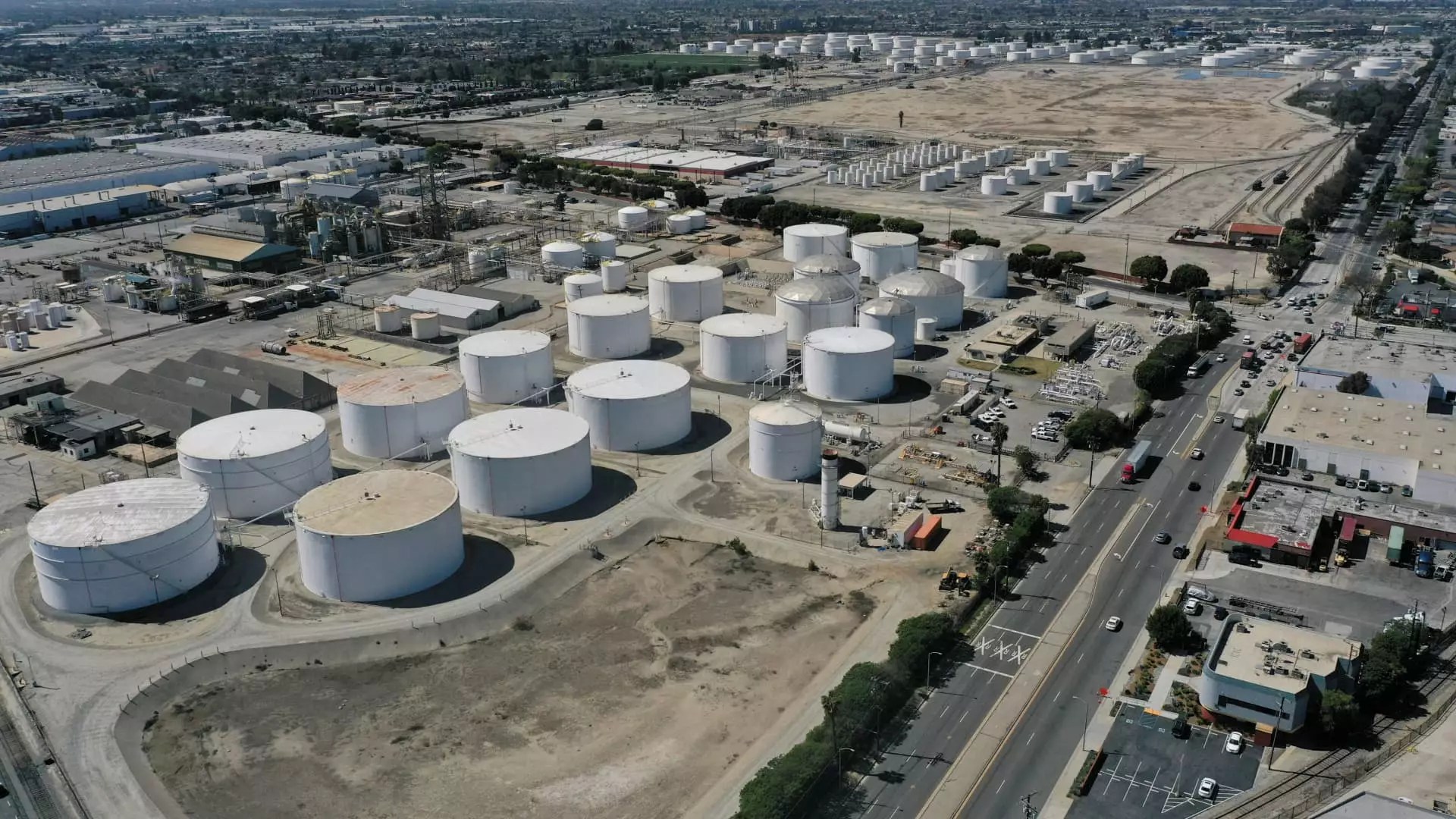The ever-evolving landscape of energy demand, particularly in the realm of data centers, presents a promising horizon for companies engaged in the transportation and storage of natural gas. A recent analysis by Bank of America advocates that the midstream sector of natural gas liquids could serve as a robust investment opportunity, especially for those who also pay substantial dividends. In the current climate characterized by an oversupply of natural gas, discerning investors may find merit in examining how this trend is set to shift, particularly looking to 2025.
Analyst Jean Ann Salisbury emphasizes the potential within the midstream sector, asserting that natural gas-linked companies may see a resurgence as the demand for liquefied natural gas (LNG) rises alongside data center developments. This forward-looking perspective illuminates an encouraging narrative in which oversupply is viewed as a temporary phase rather than a long-term hindrance. By 2025, Salisbury suggests, market conditions could dramatically improve. As companies innovate and adapt to the fluctuating demands of energy consumers, the midstream segment’s defensive nature could buffer them against immediate market turbulence.
Furthermore, it is critical to recognize that major institutional investors may not yet be fully recognizing the long-term opportunities for free cash flow generation. This could point to an undervaluation of assets within this sector, opening the door for savvy investors ready to act before the wider market aligns with the analyst’s forecast.
Among the stocks favored by Bank of America, Enterprise Products Partners LP stands out not only for its strategic positioning within natural gas liquids but also for its promising dividends. The investment bank’s price target of $35 represents a potential upside of 20% from recent valuations. With a focus on maintaining a substantial market share in the rapidly expanding Permian natural gas liquids sector and enhancing its export capabilities, Enterprise Products has demonstrated significant promise.
Moreover, there is an expectation that as capital expenditures (capex) stabilize following the current expansion phase, the potential for cash flow generation could reach impressive levels—anticipated at over $3.3 per share. Investors have reacted positively, with the company boasting a compelling dividend yield of 7.3%, attributed partly to its status as a limited partnership. This structure allows for preferential tax treatment, making it an attractive option for income-seeking investors, albeit with the associated complexity of tax documentation such as the K-1 form.
Another compelling player highlighted by Bank of America is Energy Transfer LP, which has earned a buy rating alongside a projected price target of $20, signaling a potential 22% increase from current levels. Energy Transfer’s diversified portfolio, characterized by a solid base of pipeline assets and modest growth in natural gas and crude production, is well-positioned for the evolving market dynamics.
Notably, the company is developing a liquefied natural gas export facility in Lake Charles, Louisiana, which could serve as a significant growth catalyst in coming years. With an impressive dividend yield of 7.8%, Energy Transfer has drawn favorable attention from investors, and a remarkable 94% of analysts have rated it as a buy or strong buy. This confidence reflects a shared belief in the company’s foundational strengths, even amidst a challenging economic backdrop.
Adding to the portfolio of compelling investments is Kinder Morgan, touted as a key beneficiary of the anticipated long-term surge in U.S. natural gas demand. With a price target of $27, analysts project a nearly 9% upside from recent trading levels, while the stock has already delivered an impressive 40% increase this year. Its dividend yield, at 4.7%, offers a less aggressive but steady option for investors.
Bank of America has identified Kinder Morgan as uniquely situated to benefit from emerging gas demand in regions such as the Arizona/Texas and Midwestern areas. As established brownfield gas pipelines continue to play a critical role in meeting the demands of existing infrastructure, Kinder Morgan’s long-term projects are expected to stimulate further growth, culminating in valuable returns for stockholders.
The current trajectory of natural gas demand signifies a critical juncture for midstream companies as they brace for significant transformations in the energy market. With a focus on stocks like Enterprise Products Partners, Energy Transfer LP, and Kinder Morgan, investors have the opportunity to tap into a sector poised for growth. The prospect of lucrative dividends paired with the potential for capital appreciation presents an appealing case for those seeking investments in an increasingly dynamic energy landscape.
As always, prospective investors should conduct thorough due diligence and consider the specific risk factors associated with each investment choice. The midstream natural gas sector may very well provide a compelling arena for income generation and capital gains in the coming years.


Leave a Reply